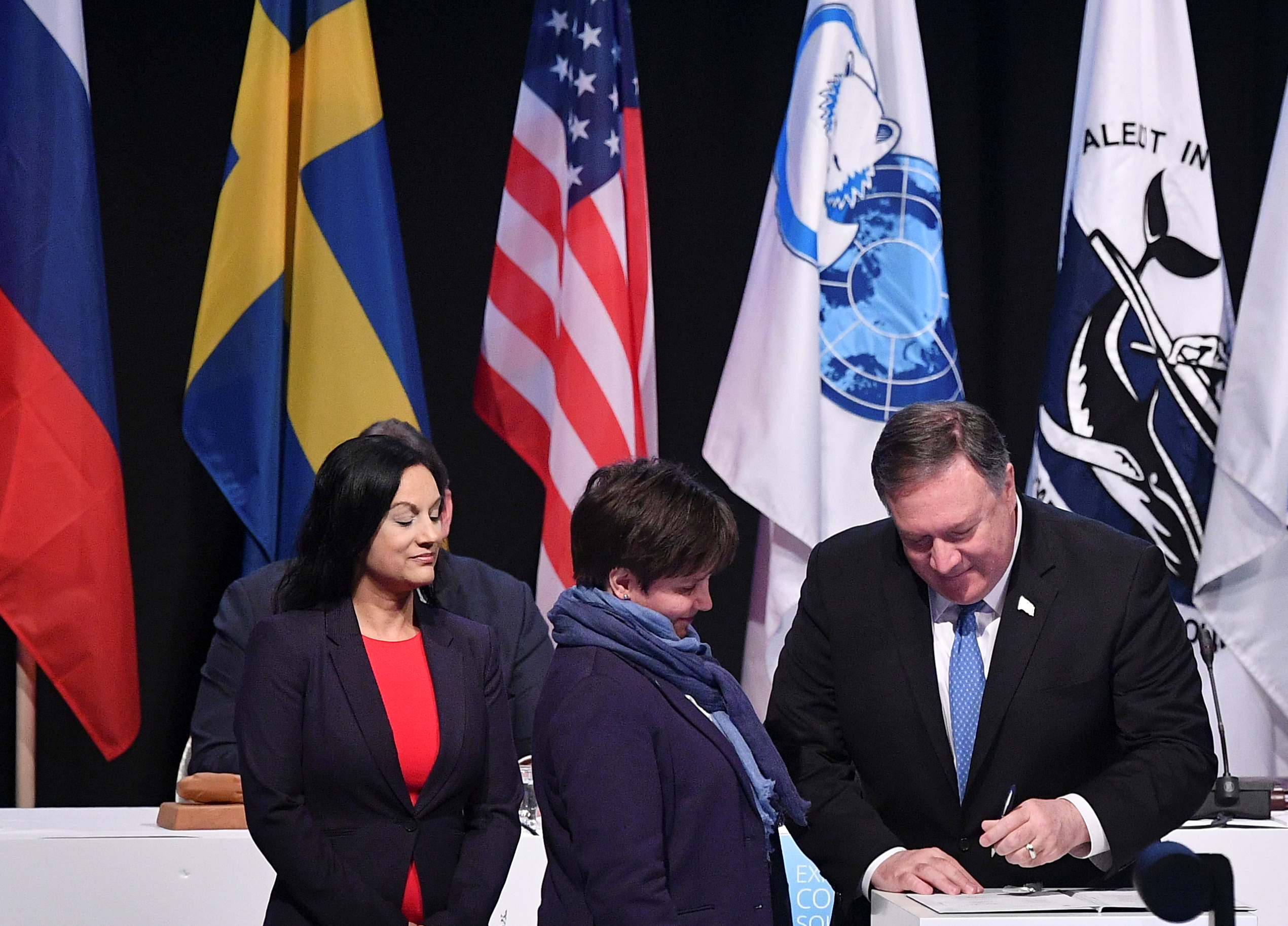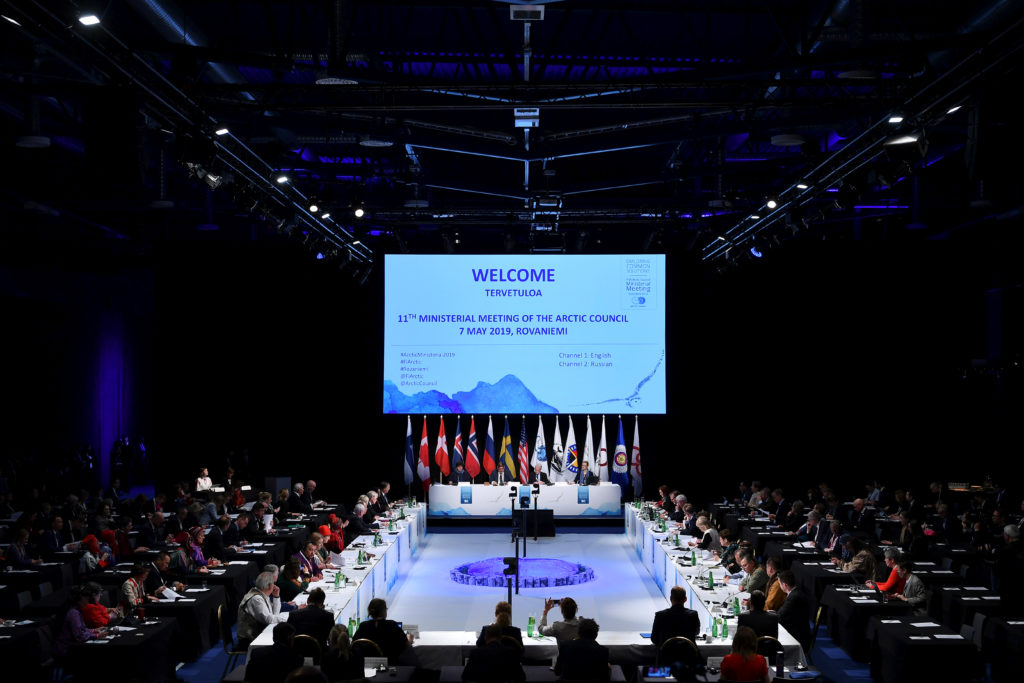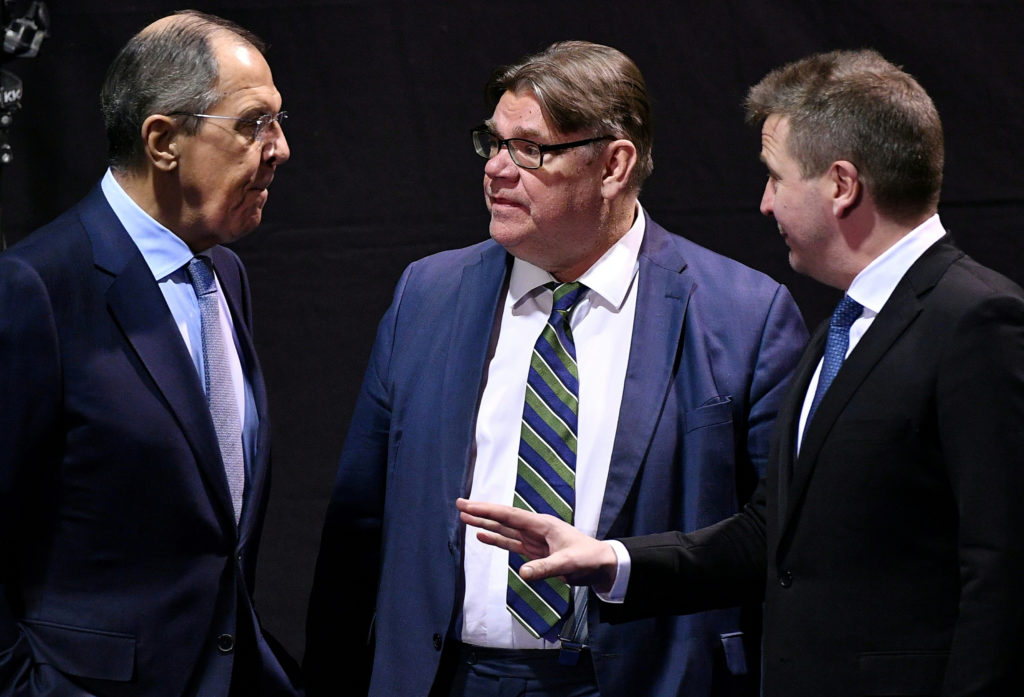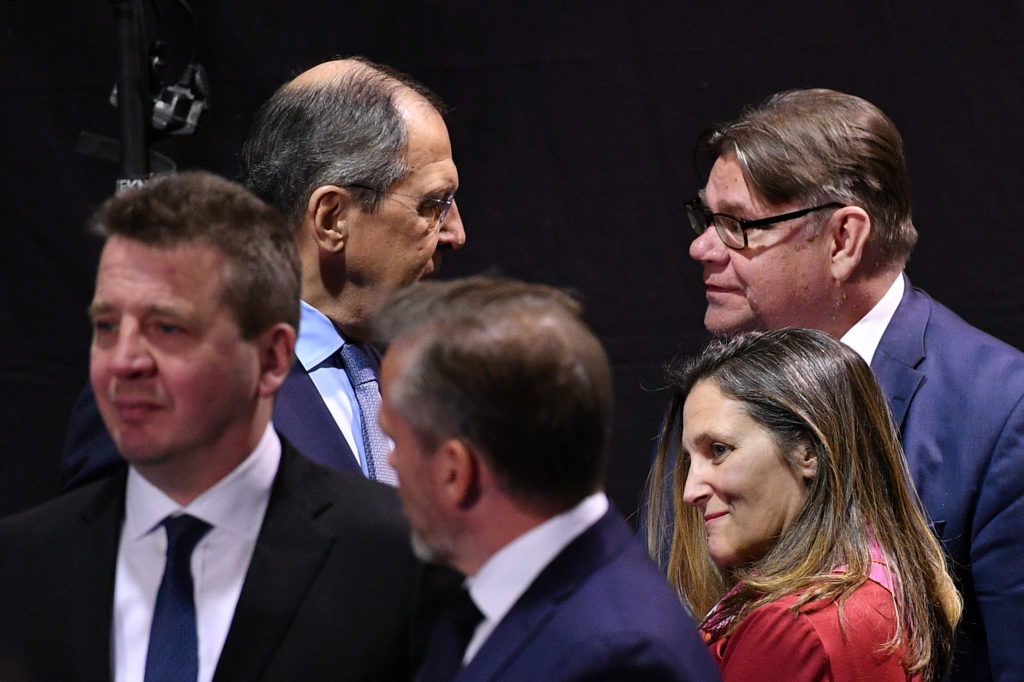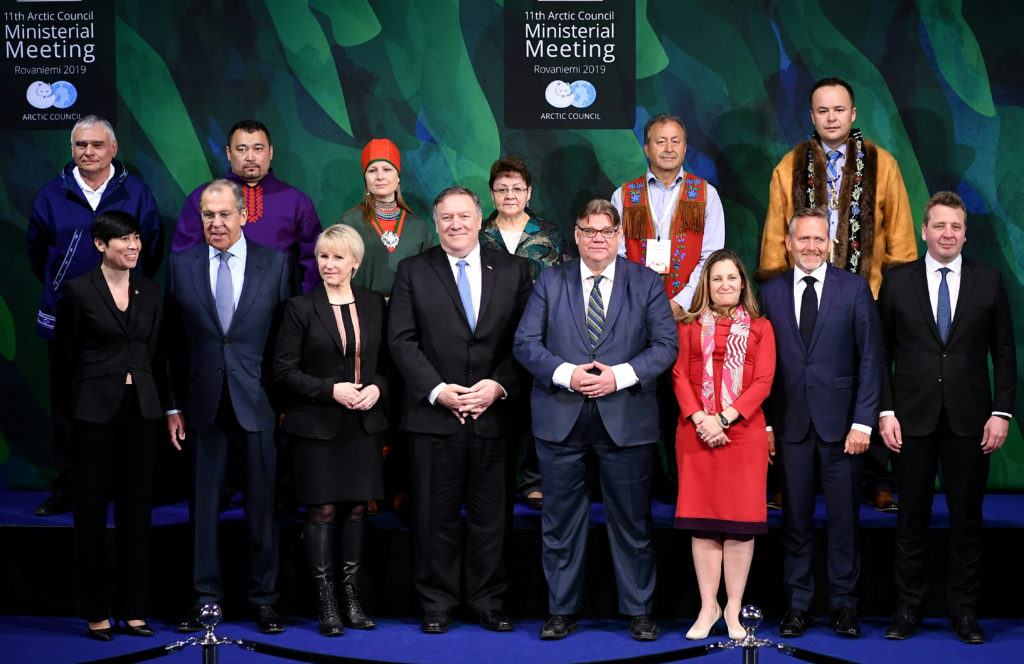For the first time ever, an Arctic Council ministerial meeting has ended without a joint declaration
Staunch U.S. opposition to climate change language scuttled last-minute efforts to build a compromise on a joint declaration.
A meeting of all eight Arctic foreign ministers, including U.S. Secretary of State Michael Pompeo and Russia’s Sergei Lavrov, ended on Tuesday in Rovaniemi, Finland without a joint declaration to signal common ambitions and direction for the work of the Arctic Council for the coming two years. This is the first Arctic Council ministerial meeting to end without such a declaration.
Two months of intense negotiations, including last-minute efforts in advance of the Rovaniemi meeting, was not enough to forge consensus between U.S. delegates, Indigenous peoples representatives and delegates from the other seven Arctic states on wording and ambitions on climate change. The presence of the ministers themselves was not enough to soften U.S. opposition to any mention of climate change in the declaration.
One of the permanent representatives of the Indigenous peoples, Bill Erasmus, head of the Arctic Athabaskan Council, in his formal speech at the meeting made no secret of his frustration.
“We have some real concerns, climate change is real and out elders tell us we are in real in trouble,” he said.
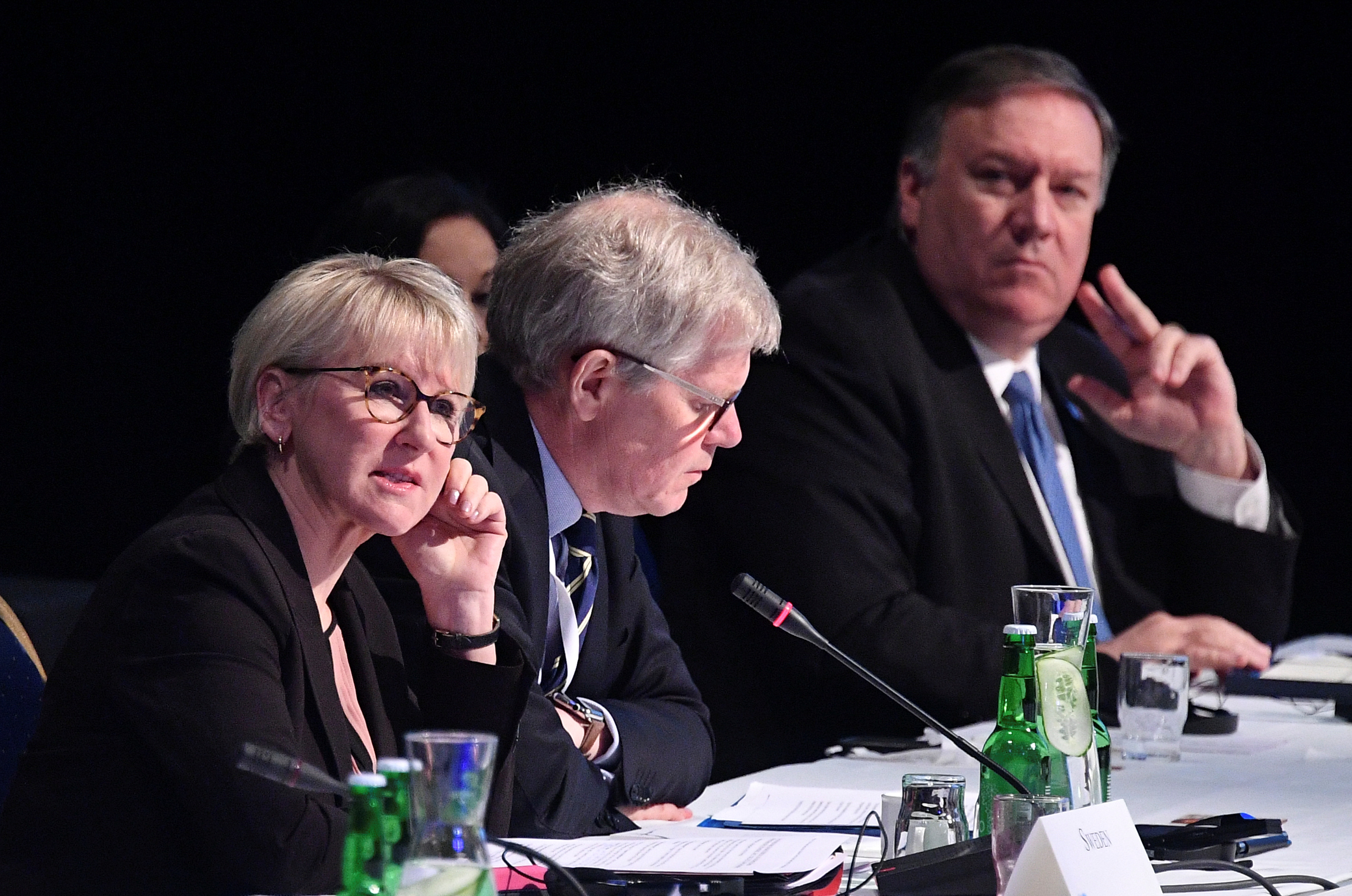
Sweden’s foreign minister Margot Wallström also regretted that no formal consensus on a declaration was reached. Climate change is “happening as we speak,” she stressed. (Late last week, researchers announced that April sea ice extent was the lowest ever recorded.)
“Our planet has done all she can to do to keep Greenland and the permafrost in Siberia intact,” she said and called for “urgency of action.”
“Making observations is not the same as taking action,” Wallström said, thanking the representatives of the Indigenous peoples for reminding the Arctic Council of the need to address climate change.
U.S. Secretary of State Michael Pompeo in his speech confirmed the United States’ continued commitment to Arctic cooperation. He stressed that the U.S. is committed to cooperation on “environmental stewardship” in the Arctic, but did not mention climate change. Instead he indicated that an increased Chinese presence in the Arctic might constitute a threat to the environment. He also said that the U.S. has reduced emissions of black carbon more than any other Arctic nation.
Norway’s foreign minister Ine Søreide Eriksen stressed the importance of climate change but did not mention the lack of consensus. Instead she stressed how the eight Arctic governments still agree on new approaches to marine conservation and other joint priorities. She interpreted the presence of all eight Arctic Foreign ministers as a strong sign of common support for Arctic Cooperation. It is only the second time in the 23 years of the Arctic Council that all eight foreign ministers attended an Arctic Council meeting.
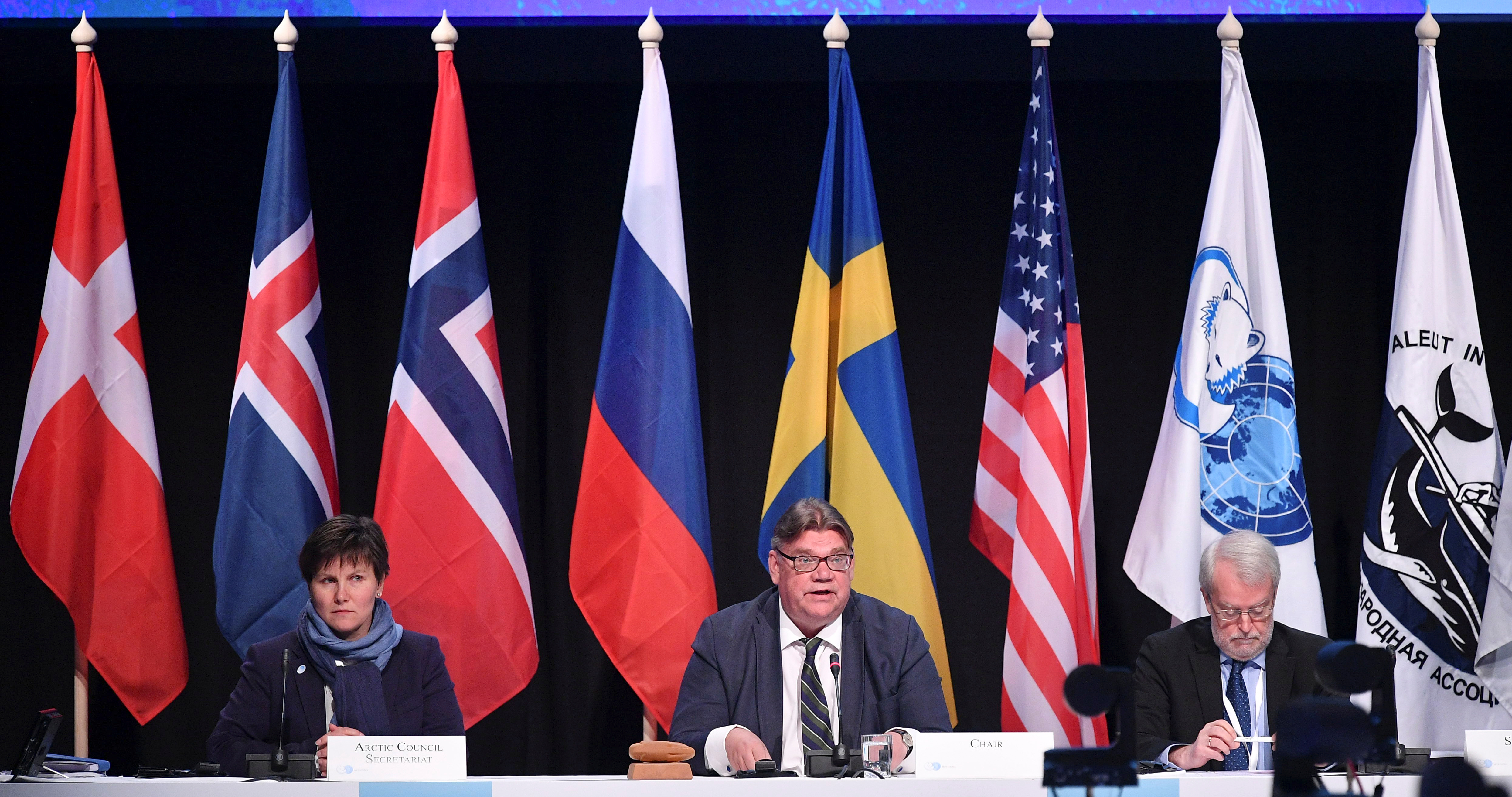
The majority view was expressed by a formal statement by the Finnish chairman of the meeting, foreign minister Timo Soini:
“A majority of us regarded climate change as a fundamental challenge facing the Arctic and acknowledged the urgent need to take mitigation and adaptation actions and to strengthen resilience, and welcomed the outcomes of the UNFCCC COP24 in Katowice, including the Paris agreement work program.”
Soini opened the ministerial meeting here on Tuesday morning with a change of the formal agenda, cancelling in effect the planned signing of a joint declaration. Instead, the ministers signed a so-called joint ministerial statement, a brief two-page document of less formal significance, but still designed to preserve a measure of unity between the eight governments represented within the Arctic Council.
“I am happy with the result. The result could have been worse,” Soini said after the meeting, as he handed the chairmanship of the Arctic Council for the next two years to Iceland.
The joint ministerial statement signed by all foreign ministers, including Pompeo, did not mention climate change. Instead it recognized “the diversity of the societies, cultures and economies in the Arctic, reaffirming our commitment to the well-being of the inhabitants of the Arctic, to sustainable development and to the protection of the Arctic environment.”
The statement alongside other formal instruments will ensure that the work of the Arctic Council, its scientific working groups and other subsidiaries can continue to work, even if no comprehensive political declaration was able to produce consensus between the governments.
